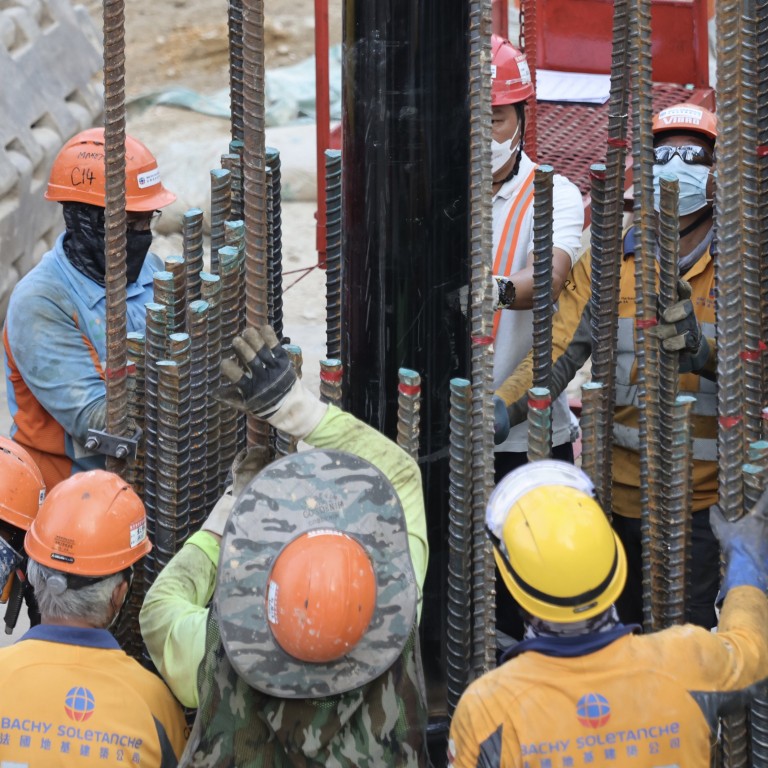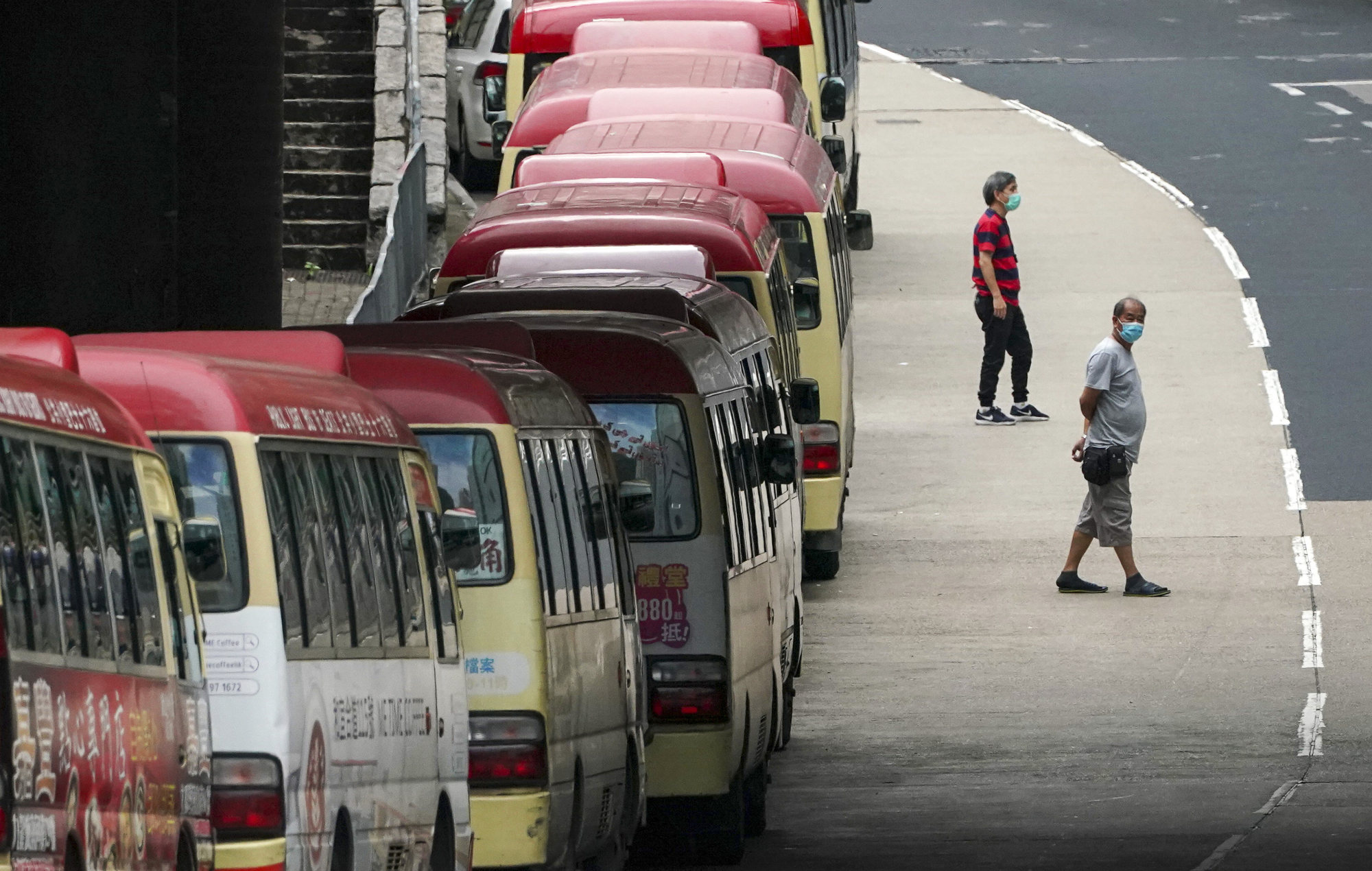
Importing workers to ease Hong Kong’s labour crunch will not improve salary, welfare for locals, unions warn
- Workers’ groups from sectors said to be target of new scheme, such as construction, aviation and transport, renew opposition ahead of decision by authorities
- Development minister earlier said move was ‘unavoidable’
Importing workers to Hong Kong to ease a labour crunch would not give bosses any incentive to improve the salaries and welfare of local employees, unions from various sectors in the city on Friday warned.
Ahead of the government setting the tone on the issue next month at the earliest, unions made their last-ditch bid to underscore the consequences of the move.

Steven Chu Hon-chung, director general of the Airport Air Freight Employees’ Association, on Friday said airport frontline workers, including aircraft cleaners and baggage handlers, already had low basic salaries, ranging between HK$13,000 and HK$16,000 (US$2,000), and had to rely on overtime work to make ends meet.
“Long working hours and working at a remote site aren’t very attractive,” Chu told a radio programme. “Importing labour for low-income jobs would be a blow to local workers … Will there be no incentives for employers to increase the salary and welfare of locals?”
Companies in Hong Kong wrestling with 20 per cent turnover rate, business group says
According to unverified sources quoted by other media outlets, the government plans to introduce foreign labour under a special scheme for a number of jobs, including bar-bending and scaffolding, driving minibuses, and airport frontline operations.
Unions have slammed authorities for bypassing the Labour Advisory Board, the body that recommendations applications for foreign labour imports before the administration makes a final decision.
At present, it takes an average of five months to import labour. Employers can file applications and prove that there are no suitable candidates available locally. The submissions are then considered by the board and referred to the government.
New minimum wage still fails the working poor as wealth gap widens
“Hong Kong has a lot of people. The traffic is busy and there are a lot of traffic lights. They may not be able to adapt to the tight pace of life,” Chan warned on the same radio show.
He urged for improvements in local drivers’ pay and working conditions to ease the crunch.

But Chan Chi-fai, operating officer of minibus company Kellis, said raising drivers’ salaries would not alleviate the manpower shortage as some chose to work less to qualify for government subsidies.
To receive the government’s monthly welfare aid of HK$4,060 under the Old Age Living Allowance scheme, a couple aged 65 or above can only earn HK$16,080 at most per month.
Chan said hiring was difficult even if a company offered up to HK$90 per hour for local drivers. He said he would rather import workers to ensure service, despite the higher operational cost generated by having to provide staff dormitories.
Record drop in Hong Kong labour force as 94,000 workers call it quits in 2022
“Hiring such workers can ensure the continuity of our minibus service and serve residents,” Chan said.
He added he would prefer recruiting drivers from mainland cities near Hong Kong as they could speak Cantonese, while those living near the border could head back home after work.
Chan also said minibus operators would provide training in line with government instructions.
The Labour Department told the Post that the Development Bureau and the Transport and Logistics Bureau were studying the staffing problem and aimed to draw up preliminary suggestions soon.
A spokeswoman said the bureaus would hold discussions with the sector and announce the proposals at a later date.
She added that the government would continue to review and foster labour training so the workforce could better match Hong Kong’s development needs.

